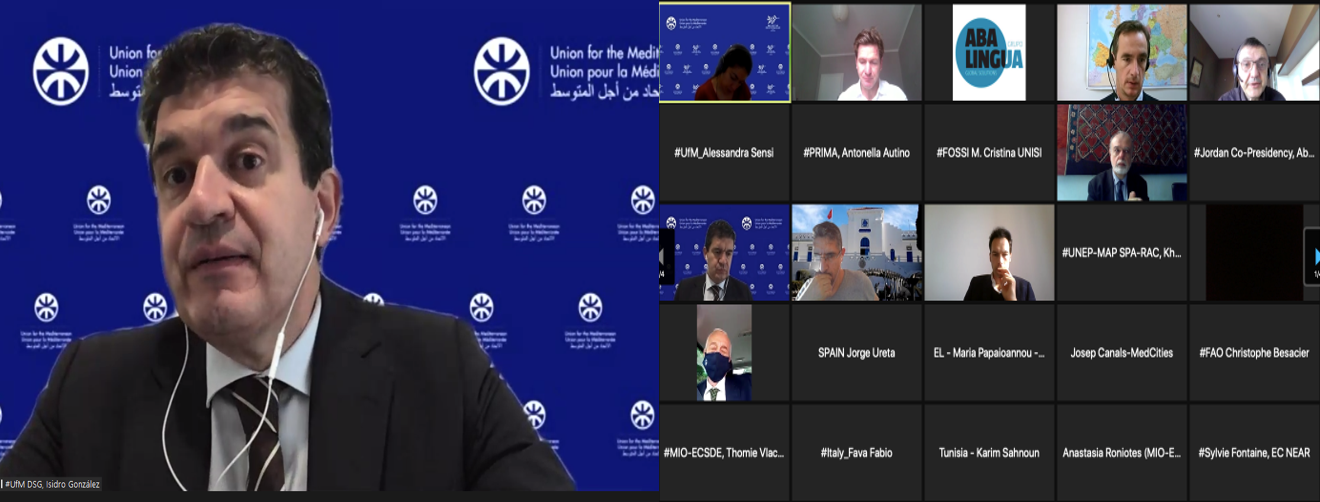The 5th meeting of the UfM Task Force on Environment took place yesterday, bringing together country representatives and regional stakeholders of the UfM environment agenda. The virtual meeting was chaired by the UfM European and Jordan Co-Presidency, with the support of the UfM Secretariat. Its main objectives included:
- Discussing the priorities for action under the 2030 Greener Med Agenda, the new proposed tool for regional integration and collaboration;
- Exploring the opportunities for partnership and funding related to the 2030 Greener Med Agenda in view of the ongoing programming;
- Defining the operational modalities of the 2030 GreenerMed Agenda;
- Showcasing and linking regional key actions and related developments on (i) plastic within a green circular economy approach (land and sea) and (ii) nature-based solutions, with a focus on Wetlands and Marine Protected Areas.
Strong emphasis also emerged on sustainable food systems and value chains, in view of the upcoming UN Summit on Sustainable Food Systems and the related Mediterranean Dialogue, which the UfM is co-organising together with the Food and Agriculture Organization (FAO), the International Centre for Advanced Mediterranean Agronomic Studies (CIHEAM), One Planet and the Partnership for Research and Innovation in the Mediterranean Area (PRIMA).
Key moments of the meeting included:
- A presentation of the next steps towards the 2021 UfM Ministerial on Environment and Climate Action, including the upcoming UfM Ad Hoc Senior Officials Meeting, scheduled for the 23rd of June;
- An update of the fine-tuned Agenda 2030 for a GreenerMed, including (i) the COVID-19 aspects; (ii) modalities for implementation; (iii) monitoring framework followed by a joint discussion;
- An analysis of the regional projects implemented under the umbrella of initiatives such as the European Neighbourhood Instrument (ENI) South, InterregMed, ENI Cross-Border Cooperation (CBC), IPA II, CSF, Western Balkans Investment Framework (WBIF), PRIMA, Global Environment Facility (GEF), GIZ and BMZ Germany, MAVA Foundation, Bluemed, EU Life, Network of Marine Protected Area managers in the Mediterranean (MedPAN), MedFund, Sustainable Food Systems (SFS) Med Platform, and International Climate Initiative (IKI)/ FAO that are supporting the 2030GreenerMed and its three priority areas:
- Support the transition towards a green, circular and socially inclusive economy based on sustainable consumption and production practices and nature-based solutions;
- Prevent and reduce pollution on land, sea and air;
- Protect, preserve, manage and restore biodiversity and natural resources in the Mediterranean region within an integrated ecosystem approach, including terrestrial, marine and coastal dimensions.
The meeting reiterated that Agenda 2030 for a Greener Med is a living document, meant as a tool for regional integration and collaboration. As such it acts as a framework for existing and emerging initiatives to work towards common goals, along the lines of the agreed axes of work.
Interreg Med, PRIMA, ENI CBC, FAO, the United Nations Development Programme (UNDP) and BLUEMED also confirmed their support to the Greener Med Agenda and willingness to contribute to its implementation plan with their relevant projects, as well as other donors and stakeholders.
On this occasion it was decided to:
- Elaborate a 2021 baseline assessment for the 2030GreenerMed to show progress up to 2030; the baseline assessment is based on the GreenerMed Theory of Change and will include an analysis of 2030GreenerMed contributions to the Sustainable Development Goalss through solutions and transformation changes and strategies;
- Provide a regular update on the associated projects and programmes (including regular monitoring briefs);
- Run an intermediary evaluation of the UfM 2030 GreenerMed Agenda in 2025 and a final evaluation in 2030.
Throughout the thematic assessments of the three priority areas, different organizations and programmes provided insights on the status of their work and important new developments with regards to ecosystems and biodiversity (FAO/UN Environment Programme (UNEP), MEDWET, SPA RAC/UNEP Mediterranean Action Plan), as well as with regards to regional actions on plastic prevention and management within a circular approach (land and sea) (WES, SwitchMed, Interreg Med Green Growth Community, Plastic Busters, BLUEMED).
On education for sustainable development, it was highlighted that the 2022 UNESCO Education for Sustainable Development (ESD) Conference will be on ‘circular economy, sustainability and tourism’ and will take place in the Mediterranean.
In closing, the co-presidency highlighted how encouraging such a wide range and diversity of initiatives is, and stressed how important it is to create stronger links among stakeholders to address the many challenges of the Mediterranean.
Learn more here


